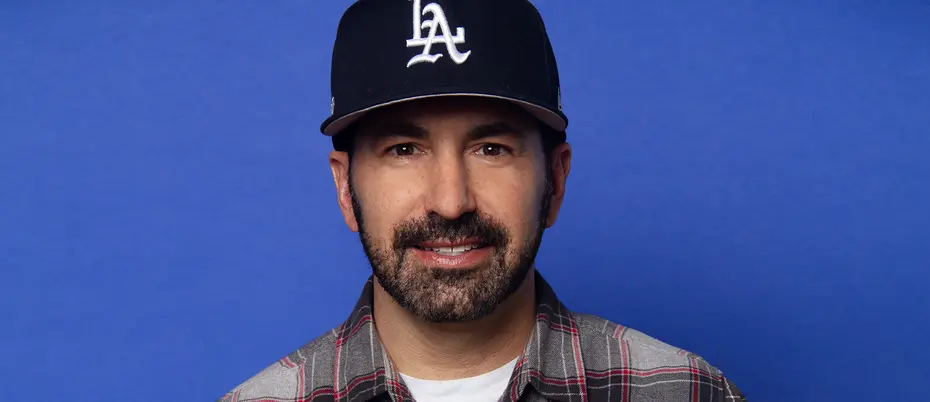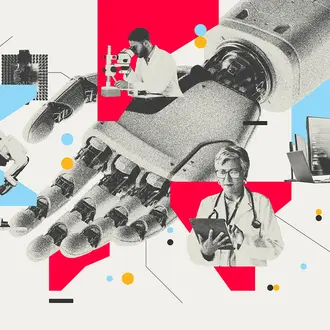Leadership
Film producer Scott Budnick: Hone your talent, then use it to make change
Writing checks is good, but it’s not good enough, says film producer Scott Budnick. Here’s why he’s ready for his closeup with “the narrative side of social change.”
Scott Budnick got his start in the movie industry as a production assistant on the set of the 2000 sex comedy “Road Trip,” went on to produce blockbusters such as “Old School,” “Starsky & Hutch,” and “The Hangover” — and then left the business.
The reason? While Budnick was working on “Old School,” a friend asked him to speak at a creative writing class in a Los Angeles juvenile detention center. He learned that many of the teenagers there were facing life sentences and had no one to advocate in their defense.
Budnick committed to teaching the class weekly, began hiring formerly incarcerated people for his movies, and, in 2013, stopped producing movies to establish the nonprofit Anti-Recidivism Coalition, which offers resources and support to formerly and currently incarcerated people and their families.
“I realized that I wasn’t getting as much joy out of making movies as I was out of working with young people coming out of the system,” Budnick said during a recent panel on leadership and community restoration hosted by the MIT Sloan Sustainability Initiative.
Despite big wins — the coalition was instrumental in getting 14 bills related to incarceration and reparative justice signed into law in California — Budnick realized he was missing a critical element needed to scale its success nationally and internationally: storytelling.
“I realized that I wasn’t using the biggest tool I had in my toolbox — that I know how to make movies and TV shows that people watch,” Budnick said. “I realized I could make films and TV shows that could make a difference, could make an impact.”
Budnick raised $75 million and in 2018 launched 1Community, a film and television company for social impact. The company has produced “Just Mercy,” a biopic of criminal rights defense attorney Bryan Stevenson, starring Michael B. Jordan, and “Respect,” Jennifer Hudson’s portrayal of the life of Aretha Franklin. It currently has almost three dozen film and television projects in the pipeline.
We spoke with Budnick recently about business challenges, idea generation, and movies from his childhood that shaped the arc of his career. The interview has been edited for length and clarity.
What skill or ability has served you well in your work?
Everything is relationships — everything. So the ability to be authentic and real, and to build relationships off of that, is hugely important. But [so is] having the spirit of just getting shit done — showing up early, staying late, working hard. Whether I’m at the bottom of the totem pole as a production assistant or I’m the CEO, that work ethic shouldn’t stop.
How do you and your team keep track of new ideas?
Related Articles
We have a couple of meetings during the week that are deep-dive brainstorm sessions. Someone presents a new idea, and if we decide it’s an idea we want to build out, then we have work sessions to do that.
There is a timeline of activities to take an idea to an outline, or to a pitch, or to a script that leads to a movie. So we have a whole content team that works on the initial idea, bringing it to the brainstorm, to the design group, to the outline, to the script, then to the movie.
Personally, I’m kind of old-school. I have just a notebook and a pen, and I write notes. Obviously, sometimes I keep notes in my phone, but for me to stay organized, actually writing it down is crucial.
What is the most difficult lesson you’ve learned in your professional life? In what unexpected way did you grow from it?
COVID-19 clearly did a number on [the movie] business, and all of the streamers coming online happened at the exact same time. So the theatrical experience of seeing a movie in a theater was basically done for, one, because of the pandemic, and two, because of this new medium that allowed people to watch stuff at home.
This was two years after my company was formed to finance and produce movies to be released in movie theaters. So it could have been the end of the company, or it could be the moment where we came in, we understood the marketplace, we understood what people wanted, we saw where things were going, we adapted, and we changed.
We did [that], and I think we have a better company because of it. So what seemed like a disaster has actually helped us and given us more opportunities.
How do you manage stress, overload, and burnout?
For me, it’s nature: being able to get out of the city, get into nature, put my phone away, and be away from the hustle of everything. If I have great friends there, wonderful. But I’m fine being by myself; I’m fine being with my dog. The ability to not have to expend energy sometimes and to just be is really special to me.
I feel great when I work out in the morning, but that’s not helping me with my burnout. Turning the phone off and getting away is everything.
What are your most useful sources of information?
I’m a news junkie, so I use Apple News and read a lot. I usually read current events and news when I first wake up and before I go to bed, and sometimes at the office for an hour a day as well.
In my business, I am on the phone so much, or I’m listening to books on audio that could be potential movies, that I don’t get a chance to listen to news or to podcasts. I drive a lot — I live in Los Angeles, and I live an hour away from the office, so I’m driving at least two to three hours a day. And the entire time, I’m either on the phone or listening to scripts.
What is one thing you have read, watched, or listened to that informs your work today?
I’ve always been someone who’s really, really moved by film and television. “Stand by Me” was the movie when I was a kid that kind of propelled me to get into the film business. Other movies, like “Shawshank Redemption,” “The Pursuit of Happyness,” “Lion,” “Room,” “Coco,” and “12 Years a Slave,” all very much affected me emotionally and, I think, increased my levels of empathy.
Understanding the power of the effect that media can have on people led me to want to focus on storytelling and the narrative side of social change — which is, how do you change hearts and minds? That’s where I can combine my ability to tell stories to a massive global audience, like with “The Hangover,” with the stuff that really feeds my heart.
At MIT Sloan, we talk about ideas made to matter — ideas that are carefully developed and have meaningful impact in the world. In that context — what is your idea made to matter?
That we can use film and television not just to make people laugh but also to make them think, reduce their biases, change the way they see their neighbor, maybe change the way they vote. That, to me, is the big idea that I’m spending the rest of my life on.
Bryan Stevenson, who wrote “Just Mercy,” says if you really want to make change, the first step is to get proximate to an issue that you care about. If it’s criminal justice, or if it’s immigration, if it’s climate change, poverty, etc., you have to get proximate to the people being affected by the issue. Writing a check doesn’t get you proximate, and going to a white-tablecloth gala doesn’t get you proximate.
The Anti-Recidivism Coalition showed me that when you bring regular people into contact with incarcerated people — you bring people into a prison, or you introduce them to formerly incarcerated people — they understand the power of second chances, and they understand that people can change.
I can’t bring everyone into a prison, but I can tell stories that get marketed and distributed around the world that can do that — like the 35 films and television shows that we're developing and making right now.
Read next: How corporate America can advance social justice and racial equity




